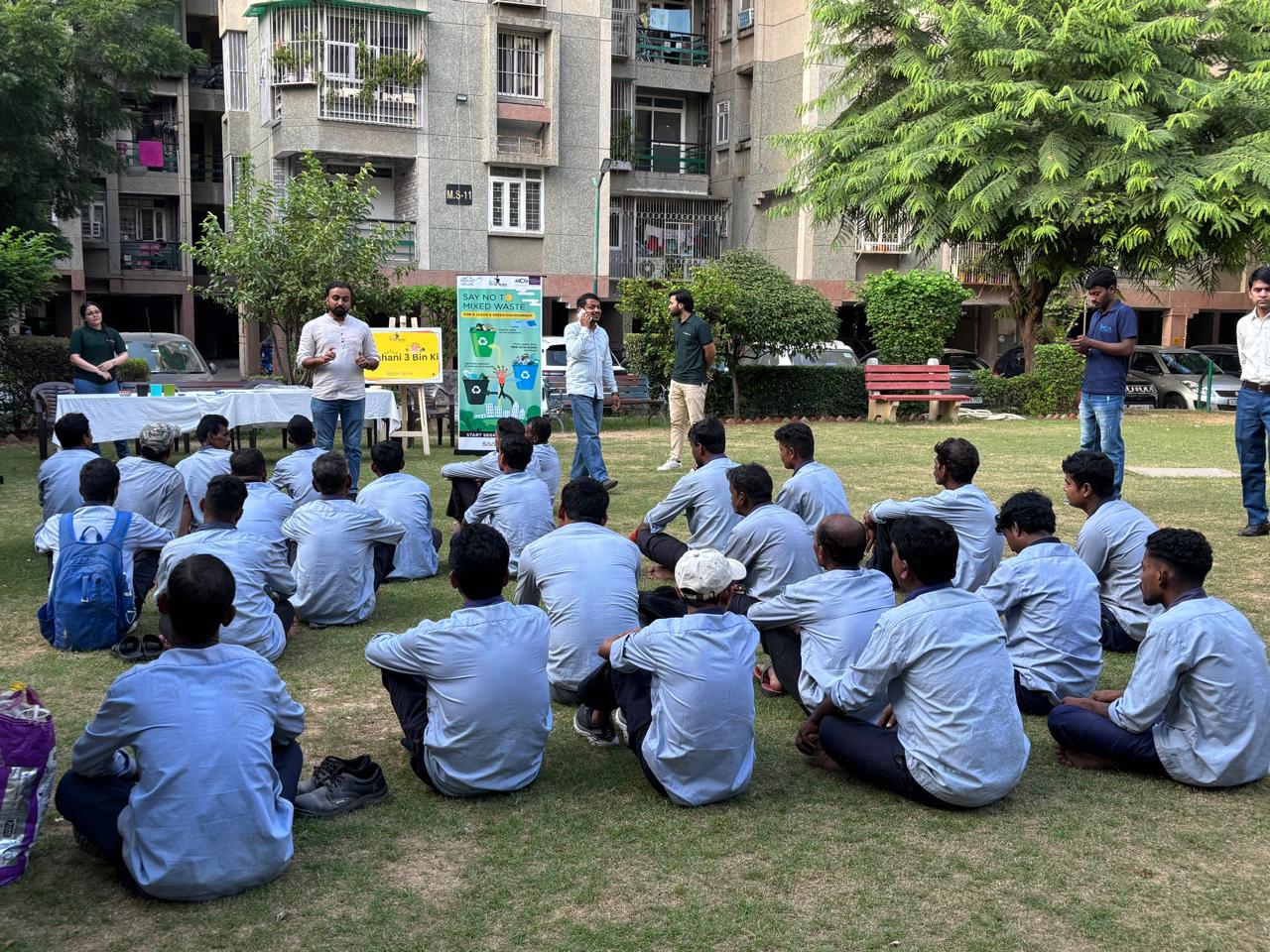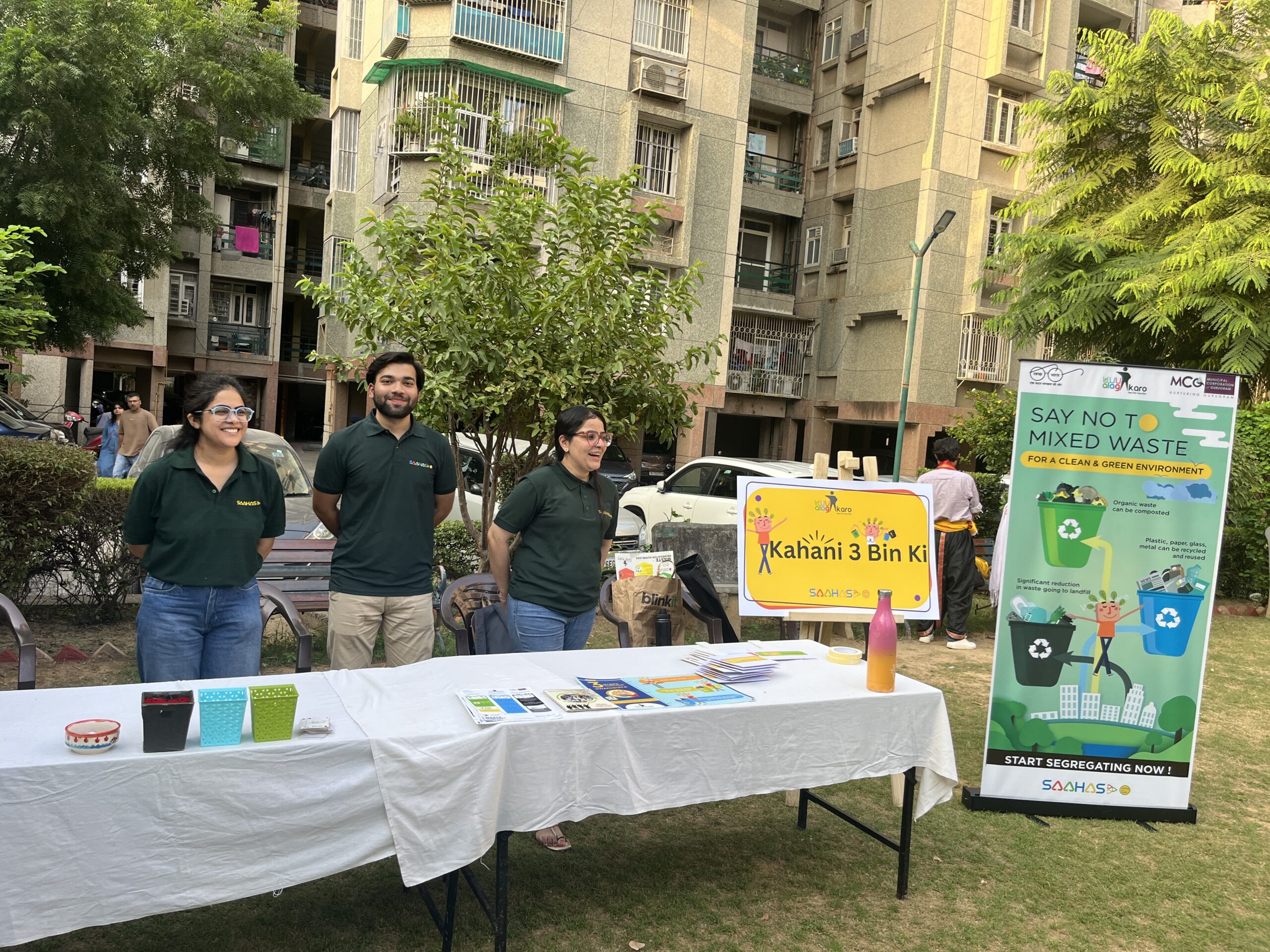
Supported By

Alag Karo 3.0
Ongoing

Supported By

Establishing Sustainable Solid Waste Management in RWAs in the City of Gurugram
Location
Gurugram
Duration
July ‘25 to ongoing
Focus Area
Hand Holding BWGs on best practices for source segregation and responsible waste management, Enabling 60% of waste for recycling and resource recovery,Strengthening BWG accountability through the MCG BWG portal.
Supported By
Gartner India Research & Advisory Services Private Limited
Coverage
3500 HHs and 14000 number of people sensitised
Target
Number of BWGs/HHs reached out 10 RWAs/3500HHs
State
Haryana
Key Stakeholders
RWAs, Residents, Sanitation Inspectors, Housekeeping staff, Housemaids and Collection staff

Background:
Gurugram is divided into 36 wards and generates around 1,200 tonnes of waste every day, which comes to about 33 tonnes per ward. Most of this waste ends up at the Bhandwari landfill, creating serious environmental problems. The city also has more than 6,000 Bulk Waste Generators (BWGs), such as large housing societies, institutions, and commercial establishments. According to the Solid Waste Management (SWM) Rules, BWGs are responsible for managing their own waste. If they do so effectively, the burden on the Municipal Corporation of Gurugram (MCG) would reduce, making waste management in the city more efficient and sustainable. The project is necessary because:
- Lack of Awareness & Knowledge persists - Many BWGs still struggle with implementing source segregation due to insufficient awareness and technical know-how.
- Low Registration on the MCG BWG Portal - Due to these challenges, many BWGs fail to register on the portal, making it difficult for the municipality to track and enforce compliance.
- Inconsistent Adherence - Even among the 600+ BWGs that are registered, compliance with waste management regulations remains irregular and inconsistent
Objectives:
- Ensuring 80% source segregation of the target BWGs in the selected wards
- Enabling upto 60% of waste for recycling and resource recovery
- Strengthening accountability of the BWGs through the MCG BWG portal.
*The Alag Karo project was initiated in Gurugram (2017–2023) with the support of Deutsche Gesellschaft für Internationale Zusammenarbeit (GIZ), Tetra Pak, and The Coca-Cola Foundation
